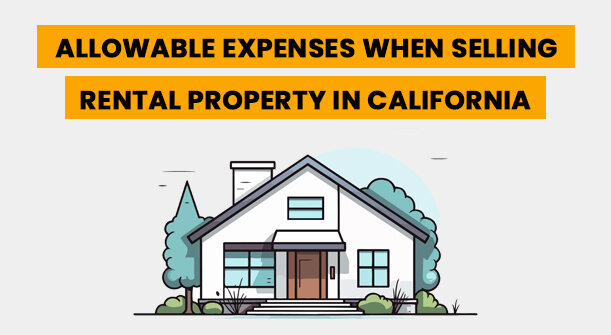
If you find yourself in the unfortunate situation of dealing with the probate process in Colorado after the passing of a loved one, you may be wondering if it’s possible to sell a house that is in probate. The answer is yes, but there are certain legal considerations and steps that need to be followed. If you’re looking for answers and guidance on selling a house in probate in Colorado, keep reading.
How Does Probate Work in Colorado?
Probate is the legal process that occurs after a person passes away to settle their estate. In Colorado, the probate process involves several steps. Here are the key points to understand about probate in Colorado:
- Filing a petition: The first step in the probate process is to file a petition with the probate court. This petition informs the court of the decedent’s passing and requests the appointment of a personal representative to oversee the estate.
- Appointing a personal representative: The court will review the petition and appoint a personal representative, also known as an executor or administrator. This person is responsible for managing the estate, including selling any property.
- Inventory and appraisal: The personal representative is required to take an inventory of the deceased person’s estate assets and have them appraised by a professional appraiser. This step helps determine the value of the estate, including the house that is in probate.
- Notifying creditors: The personal representative must notify creditors of the decedent’s passing and give them an opportunity to make claims against the estate. This step is important because any outstanding debts must be resolved before the property can be sold.
- Obtaining court approval: Before selling a house in probate, the personal representative must obtain court approval. This ensures that the sale is in the best interest of the estate and its beneficiaries.
Why Is Probate Important in Property Distribution?
Probate is important in property distribution for several reasons. Let’s explore some of the key scenarios where probate becomes necessary:
The Decedent Had Property That Didn’t Transfer Upon Death
In some cases, the decedent may have owned property that didn’t automatically transfer upon death. This could be due to the absence of a valid beneficiary designation or joint ownership. When this happens, the property becomes part of the decedent’s estate and must go through the probate process before it can be sold.
The Decedent Owes Debts
If the decedent had outstanding debts, those debts must be settled through the probate process. The sale of property in probate can help generate funds to pay off those debts. The personal representative will work with creditors to resolve any outstanding obligations before distributing the remaining proceeds to the beneficiaries.
Disputes Over Who Has the Right to Inherit the Property
In some cases, there may be disputes among family members or other potential beneficiaries over who has the right to inherit the property. The probate process provides a legal framework to address these disputes and ensure a fair distribution of assets. The court will carefully review the evidence and make a decision based on the decedent’s intentions and applicable laws.
Colorado Probate Laws You Should Know About
When it comes to selling a house in probate in Colorado, there are specific laws and regulations that you need to be aware of. Here are five key laws to keep in mind:
- Court approval: Before selling a house in probate, the court must approve the sale. The personal representative will need to submit a petition to the court detailing the proposed sale and its terms.
- Notice to potential buyers: The personal representative is responsible for giving notice to potential buyers about the pending sale. This ensures that interested parties have an opportunity to submit offers and participate in the bidding process.
- Listing the property for sale: In most cases, the personal representative will need to list the property for sale with a licensed real estate agent. This helps ensure that the property receives adequate exposure to potential buyers.
- Cash offer requirement: Colorado law requires that the sale of a house in probate be conducted as a cash transaction. This means that the buyer must provide a cashier’s check or make a cash offer to purchase the property.
- Court confirmation: Once a buyer has been found and an offer has been accepted, the court must confirm the sale. This involves a hearing where the personal representative presents the details of the sale to the court for approval.
What Is the Difference Between Testate and Intestate Probate in Property Sales?
In Colorado, probate can occur in two different scenarios: testate and intestate. Let’s explore each scenario:
Testate Probate
Testate probate occurs when the decedent has left behind a valid will. The will specifies how the decedent’s assets, including the house, should be distributed. If the will names an executor, that person will be responsible for overseeing the probate process and selling the property in accordance with the decedent’s wishes.
Intestate Probate
Intestate probate occurs when the decedent did not have a valid will. In this case, the court will appoint an administrator to handle the probate process. The administrator will follow Colorado’s intestacy laws to determine how the decedent’s assets, including the house, should be distributed.
How Do I Sell Property During Probate in Colorado?
If you need to sell a house during probate in Colorado, here is a step-by-step process to guide you:
- Appoint a personal representative: The first step is to have the court appoint a personal representative who will be responsible for managing the estate and selling the property.
- Obtain court approval: The personal representative must obtain court approval before selling the house. This involves submitting a petition to the court, detailing the proposed sale and its terms.
- List the property for sale: The personal representative will need to list the property for sale with a licensed real estate agent. This ensures that the property receives adequate exposure to potential buyers.
- Review offers: Once offers start coming in, the personal representative will review them and determine which offer is in the best interest of the estate and its beneficiaries.
- Accept an offer: Once a suitable offer has been identified, the personal representative can accept it on behalf of the estate. This acceptance is subject to court confirmation.
What Are the Legal Requirements for a House Sale During Probate?
Selling a house during probate in Colorado involves certain legal requirements. Here are some key points to consider:
Each state has its own specific laws and regulations when it comes to selling a house in probate. It’s important to familiarize yourself with Colorado’s laws to ensure compliance. As mentioned earlier, court approval is necessary before selling a house in probate. The personal representative will need to submit a petition to the court, providing details of the proposed sale and its terms.
The personal representative must gather all necessary documentation for the sale, including the death certificate, will (if applicable), and any other relevant legal documents. The court plays a crucial role in overseeing the sale process. The court will review the proposed sale, ensure it is in the best interest of the estate, and confirm the sale once satisfied with the terms.
How Do I Close the Sale of a House in Probate?
Finalizing the Transaction
Once the court has confirmed the sale, the personal representative can proceed with finalizing the transaction. This typically involves signing the necessary paperwork and transferring the property to the buyer.
Legal and Procedural Requirements
It’s important to ensure that all legal and procedural requirements are met for the closing. This includes obtaining any necessary clearances or releases, resolving outstanding debts, and preparing the necessary transfer documents.
Distributing Proceeds
After the sale is closed, the personal representative will be responsible for distributing the proceeds from the sale among the beneficiaries as per the court’s instructions. This ensures that each beneficiary receives their rightful share of the estate.
What Are Potential Challenges and Solutions When Selling a House During Probate?
Selling a house during probate can come with its share of challenges. Here are some potential challenges you may encounter and possible solutions:
- Addressing disputes among heirs or creditors: Disputes among family members or creditors can arise during the probate process. It’s important to address these disputes in a fair and equitable manner. Mediation or seeking legal counsel can help resolve conflicts and find mutually acceptable solutions.
- Strategies for resolving conflicts: Communication and transparency are key when dealing with potential conflicts. Openly discussing concerns, seeking compromise, and involving a neutral third party can help find solutions that satisfy all parties involved.
- Seeking legal counsel: Navigating the complexities of the probate process can be challenging. Seeking the guidance of an experienced probate attorney can help ensure that you understand your rights and obligations and make informed decisions throughout the process.
What Are the Timeframe and Costs Involved When Selling a House in Probate?
Selling a house in probate can take time, and there are costs involved. Here is a general timeline and an overview of the costs to expect:
Timeline for Selling a House in Probate:
- Filing the petition and appointing a personal representative: 1-2 months
- Inventory and appraisal: 1-2 months
- Notifying creditors and resolving debts: 1-3 months
- Obtaining court approval and listing the property for sale: 1-2 months
- Reviewing offers and accepting an offer: 1-3 months
- Closing the sale and distributing proceeds: 1-2 months
Costs:
- Legal fees: Hiring an attorney to guide you through the probate process can cost between $3,000 and $10,000, depending on the complexity of the estate.
- Appraisal fees: Having the property appraised can cost between $300 and $500.
- Real estate agent fees: If you choose to work with a real estate agent, their commission will typically be around 5-6% of the sale price.
What Is the Best Way to Sell a House in Probate?
If you’re looking for the best way to sell a house in probate, a cash home sale is often the most efficient and hassle-free option. Cash home buyers, such as real estate investors, can provide a cash offer for the property. This eliminates the need for financing contingencies and ensures a faster and smoother transaction.
Cash home buyers typically purchase properties in as-is condition. This means that you don’t have to worry about making any repairs or renovations before selling the house. Cash home sales can be completed in a matter of weeks, compared to traditional sales that can take months. This can be especially beneficial if you need to sell the house quickly to settle the estate.
With a cash home sale, you can skip the process of listing the property for sale and hosting showings. This saves you time and effort, allowing you to focus on other aspects of the probate process.
Sell Your House Fast in Denver, Colorado
If you need to sell your house fast but don’t want the hassle of a traditional home sale, contact Credible Homes of Colorado. We buy houses as-is. No repairs are needed. Avoid closing costs and realtor commissions. Close in as little as seven days. Call (916) 841-5555 to get a fast cash offer from our local home buyers in Colorado.
